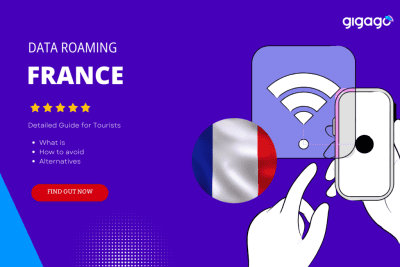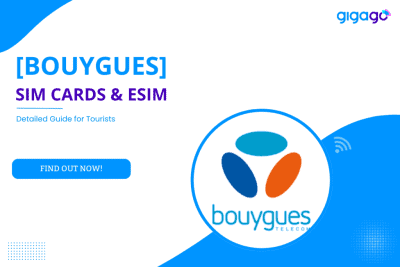All you need to know about Data roaming in France for tourists and better alternatives so you can choose the best connectivity option for your France travel.
Use Cell Phone In France: How To Do It?
Learn ins and outs about how to use cell phone in France to stay connected effectively while traveling. Also find out the best way to use your phone for good value.
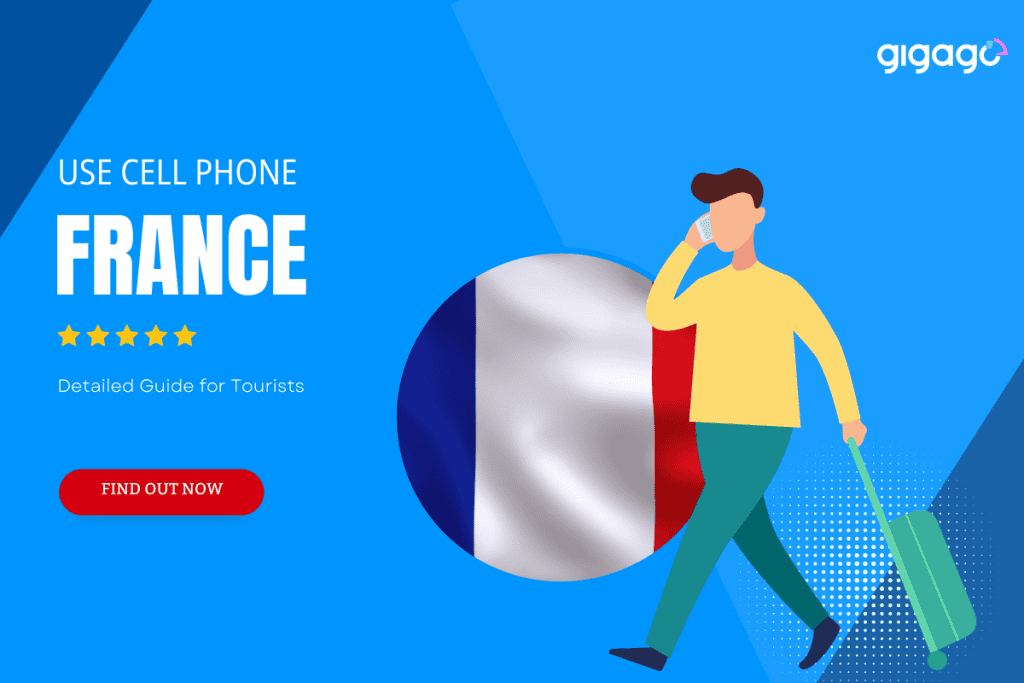
A phone is an essential device when traveling. However, if your phone is not connected, it is likely that basic needs when traveling such as translation or maps will not be available.
So how can I use cell phone in France? Below we will provide you with basic information to optimize your phone use when traveling.
In this article
I. Highlights of Phone Compatibility, Frequencies and Networks in France.
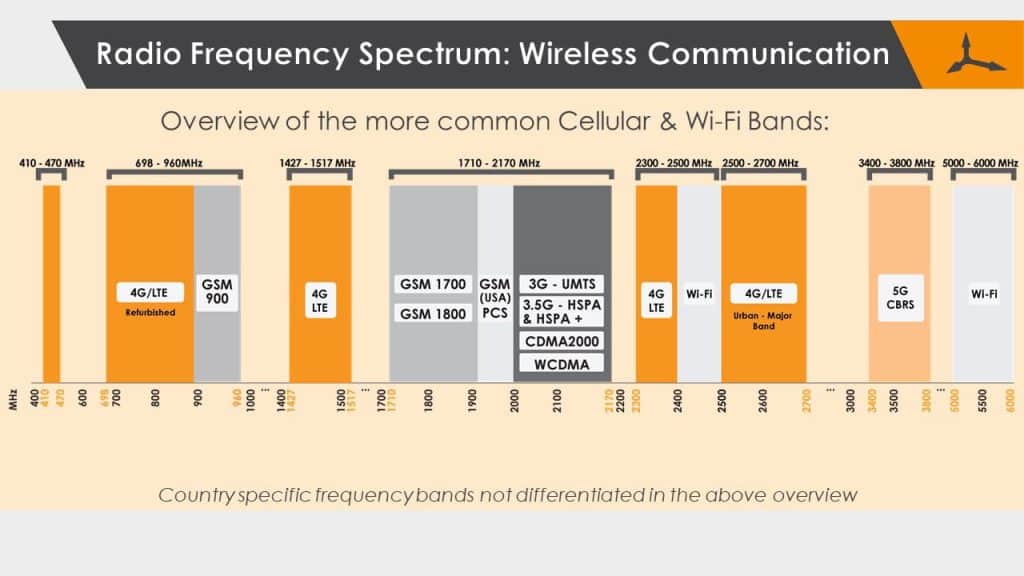
Before diving into the main topic, you should understand some characteristics of the telephone network in France:
Phone Compatibility:
- France is compatible with most GSM and CDMA phones, ensuring that a wide range of devices can be used.
- Unlocked phones or those with compatible SIM cards can easily be used in France.
Frequencies:
- France operates on commonly used frequencies such as 900 MHz and 1800 MHz for GSM networks.
- For 3G and 4G networks, frequencies like 900 MHz, 1800 MHz, and 2600 MHz are utilized.
Network Standards:
- France supports 2G, 3G, and 4G/LTE network standards, providing fast and reliable connectivity.
- The country has also started rolling out 5G technology, with several providers offering 5G services in major cities.
Roaming:
- Visitors to France can enjoy roaming services if their home carriers have international roaming agreements with French operators.
- It is advisable to check with your home carrier regarding roaming charges and compatibility before traveling.
Wi-Fi Availability:
- France offers extensive Wi-Fi coverage, with many public areas, cafes, restaurants, and hotels providing free or paid Wi-Fi access.
- Visitors can also find Wi-Fi connectivity in major tourist attractions and transportation hubs throughout the country.
II. Will My Cell Phone Work In France?
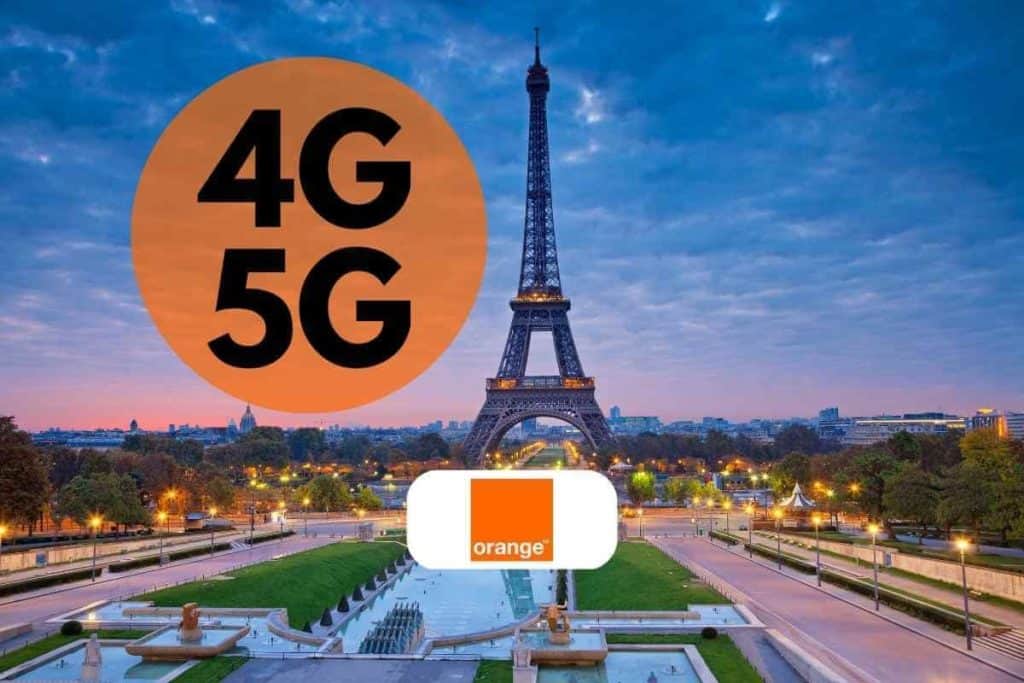
Yes, absolutely. Below, you’ll find a handy table that outlines the frequency bands used for 5G, 4G, 3G, and 2G networks by 4 major mobile network operators in France
Note: Remember, these details may change over time. Therefore, it's always a good idea to double-check with the official sources or the mobile network operators themselves for the most up-to-date information.
| Mobile Network | 5G Frequency Bands | 4G Frequency Bands | 3G Frequency Bands | 2G Frequency Bands |
| Orange | n78 (3500 MHz)n28 (700 MHz) | B3 (1800 MHz)B7 (2600 MHz)B20 (800 MHz) | B1 (2100 MHz)B8 (900 MHz) | 900 MHz1800 MHz |
| SFR | n78 (3500 MHz)n28 (700 MHz) | B3 (1800 MHz)B7 (2600 MHz)B20 (800 MHz) | B1 (2100 MHz)B8 (900 MHz) | 900 MHz1800 MHz |
| Bouygues Telecom | n78 (3500 MHz)n28 (700 MHz) | B3 (1800 MHz)B7 (2600 MHz)B20 (800 MHz) | B1 (2100 MHz)B8 (900 MHz) | 900 MHz1800 MHz |
| Free Mobile | n78 (3500 MHz)n28 (700 MHz) | B3 (1800 MHz)B7 (2600 MHz)B20 (800 MHz) | B1 (2100 MHz)B8 (900 MHz) | 900 MHz1800 MHz |
III. Do I Need An International Plan In France?
Yes, you will need an international plan in France. But why? Let’s see the explanation below:
Although, you absolutely can use free Wi-Fi in France, relying solely on it has some disadvantages:
- Free Wi-Fi coverage may be limited, especially in rural areas.
- The quality of connection can vary.
- Public Wi-Fi networks can pose security risks, such as data breaches or hacking attempts.
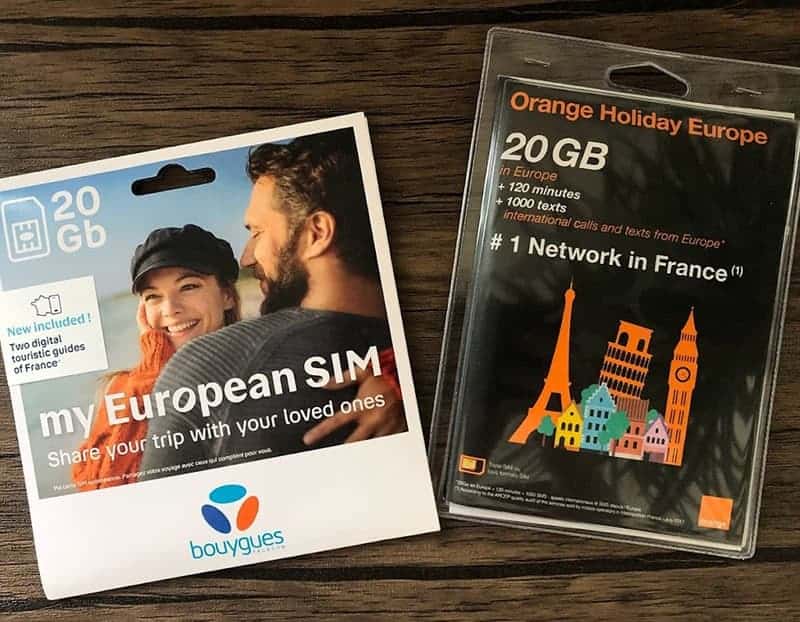
To avoid these limitations and ensure reliable connectivity, it is recommended to have an international plan for your mobile phone while in France:
- Non-disruptive access: you can connect smoothly to voice calls, text messages, and mobile data throughout the country, regardless of Wi-Fi availability.
- Avoid high roaming fees. Roaming charges can be costly if you use your home country’s mobile network while in France. With an international plan, you typically pay a fixed rate for a specific amount of data, calls, and messages, which can save you from unexpected charges.
Tip: Contact your mobile service provider before your trip to inquire about international plans that offer reasonable rates for data, calls, and messages while in France. This will help you avoid excessive roaming charges and ensure uninterrupted connectivity.
IV. What Are International Plan Options To Use Cellphones In France For Tourists?
If you are still wondering what options you have to connect to France’s mobile network, this section will provide an overview of 3 main options to consider. These include eSIM, SIM card, and pocket Wi-Fi.
1. eSIM
eSIM, short for embedded SIM or electronic SIM, is a digital SIM card that is built into your device, such as a smartphone, tablet, or smartwatch.
Suitable for: If you have a device that supports eSIM technology, using an eSIM will be the bestt option for easy and convenient connectivity.
Where to buy eSIM for France: You can buy
- At the airport when arriving in France
- Online: many mobile network providers offer eSIM activation through their websites or mobile apps.
- Authorized resellers or online platforms that specialize in eSIM services.
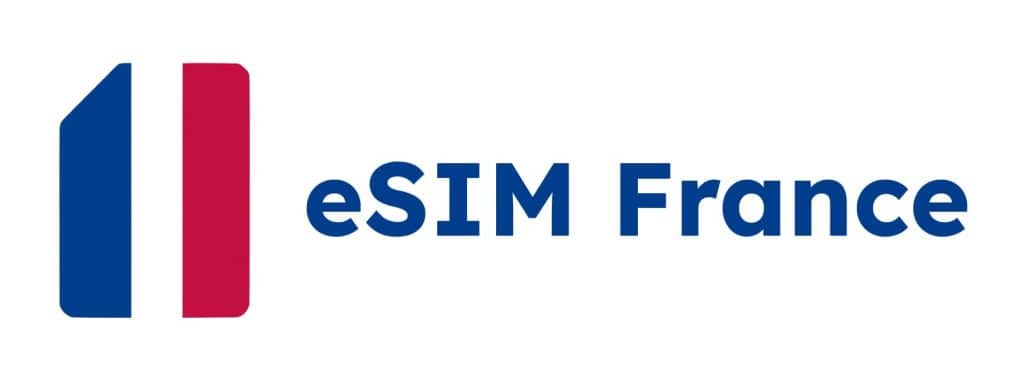
Pros:
- Various plans available: There are many packages with many different prices to meet the different needs of travelers
- Convenience: With eSIM, you can enjoy the convenience of activating and managing your mobile plan digitally. You also have multiple eSIM profiles on one device which also means you can use both your main number and travel number at the same time
- Flexibility: Switching between different mobile network providers or plans becomes extremely easy with eSIM and you don’t need to worry about physically swapping SIM cards.
- Instant Activation: the activation process is usually quick and straightforward as it entirely takes place on an online platform, just scanning a QR code
Cons:
- Device Compatibility: It’s important to note that not all smartphones or devices support eSIM technology. Before considering this option, make sure your device is compatible with eSIM functionality.
2. International SIM card for France.
An international SIM card for France is a SIM card specifically designed for travelers who are visiting France from another country. It allows you to stay connected to a mobile network while in France, providing voice, text, and data services.
Suitable for: Travelers visiting France who prefer a physical SIM card solution for their international connectivity needs.
Where to buy International SIM cards for France: International SIM cards for France can be purchased from various sources such as online retailers, mobile network providers, airport kiosks, or authorized resellers.
Pros:
- Convenience: An international SIM card allows you to easily insert it into your device and start using it immediately upon arrival in France. There’s no need to rely on Wi-Fi or hunt for local SIM cards.
- Wide Coverage: Mobile network operators in France are totally up to tourists’ needs. Some popular operators such as: Freemobile, Orange, or Bouygues.
- Good prices: With an international SIM card, you have greater control over your expenses as you can choose a prepaid plan that suits your budget. It helps to avoid unexpected roaming charges and manage your communication costs effectively.
Cons:
- Phone Compatibility: Ensure that your device is compatible with the network bands used in France to ensure optimal connectivity with the international SIM card.
Advice: Check with the SIM card provider or refer to your device's specifications for compatibility information.
- Limited Local Benefits: International SIM cards may not offer the same local benefits or promotions as local SIM cards. You may miss out on certain deals or discounts available to local residents.
- Physical activation: Unlike eSIM, using an international SIM card requires a physical card that needs to be inserted and removed from your device. This can be slightly less convenient compared to eSIM solutions.
3. Pocket WiFi

Pocket Wi-Fi, also known as a portable Wi-Fi hotspot, is a small device that allows you to create a Wi-Fi network and connect multiple devices to the internet simultaneously.
Suitable for: Travelers visiting France who want to connect multiple devices simultaneously.
Where to rent Pocket Wi-Fi for France: Pocket Wi-Fi devices can be rented from various sources such as online travel service providers, airport kiosks, or local telecommunication companies in France.
Pros:
- Multiple Device Connectivity: Pocket Wi-Fi allows you to connect multiple devices, such as smartphones, tablets, or laptops, to a single portable hotspot. This is beneficial if you’re traveling with a group or need to use different devices simultaneously.
- Cost Control: Pocket Wi-Fi rentals often come with different data plans, allowing you to choose the one that suits your usage requirements. It can be a cost-effective option compared to relying on international data roaming or purchasing multiple SIM cards.
Cons:
- Additional Device to Carry: Renting a pocket Wi-Fi device means you’ll have an additional device to carry during your travels.
- Battery Life: Pocket Wi-Fi devices have their own battery life, which means you’ll need to ensure it’s charged and monitor its usage to avoid running out of power when you need it most.
- Coverage Limitations: The strength and coverage of the pocket Wi-Fi signal depend on the provider and the location. While most major cities and popular tourist areas in Francehave good coverage, remote or rural areas might have weaker signals.
Advice: You should use eSIM as it’s the best choice for tourists because it offers many packages with affordable prices. Additionally, you can buy and activate it easily and instantly
V. Will My Local Network Work In France?
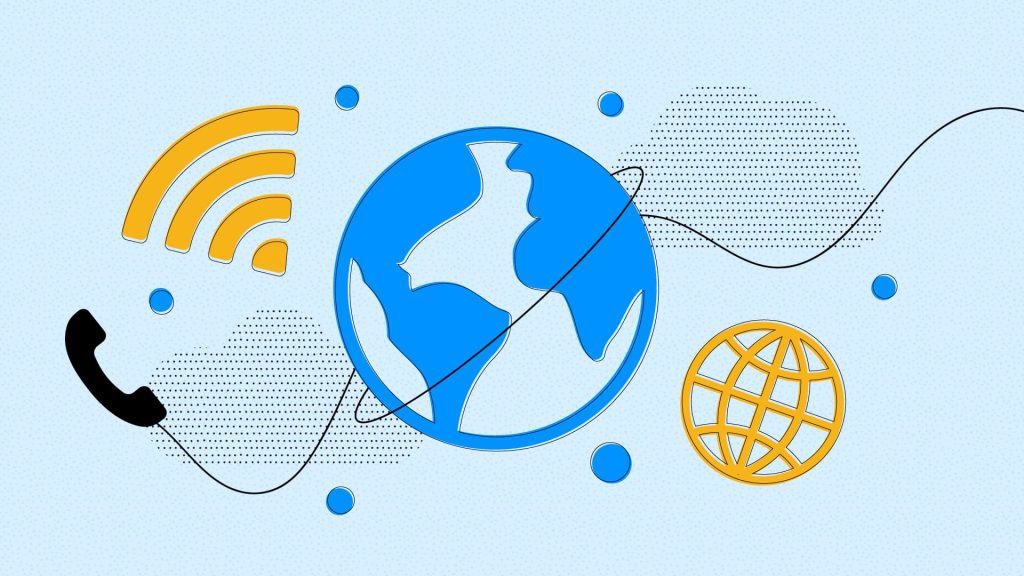
If you’re wondering if you can use your local network there, the answer is most likely yes. However, there are a few important things to consider, such as high roaming charges and potential costs.
In general, your local network should have coverage in France, meaning you can make calls, send texts, and use data services. It’s convenient because you can keep your existing SIM card and phone number while traveling. However, it’s crucial to be aware that using your local network abroad can be expensive due to roaming charges.
Roaming charges are the fees you’ll incur for using your local network in a foreign country like France. These charges can add up quickly and make your phone bill much higher than usual. They apply to both incoming and outgoing calls, texts, and data usage.
If you don’t control your usage, the price paid at the end of your trip will be very expensive.
VI. Gigago eSIM – An Alternative To Get Internet In France With Your Cell Phone.
eSIM is a type of technology SIM that can be owned immediately by scanning a qr code. This is a new generation SIM card with outstanding features that overcomes the disadvantages of other forms of communication:
- Convenience: No physical SIM card needed, making it easier to switch devices or networks.
- Dual SIM functionality: Have multiple phone numbers or data plans on one device.
- Easy activation: Activate remotely using a QR code or activation code.
- Flexibility: Easily switch between mobile network operators without a physical SIM card.
- Space-saving: Frees up space in devices for other components.
- Enhanced durability: No risk of losing or damaging physical SIM cards.
For France, Gigago offers multiple data plan options, starting from 1 GB for 3 days with $ 2.0 . What is great about Gigago’s France eSIM is that its plans’ costs are diversifying, varying between $ 2.0 – $ 99.5 . Thus, it does not matter how Internet users you are and how long your trip is in France, there is always an option for you with Gigago.
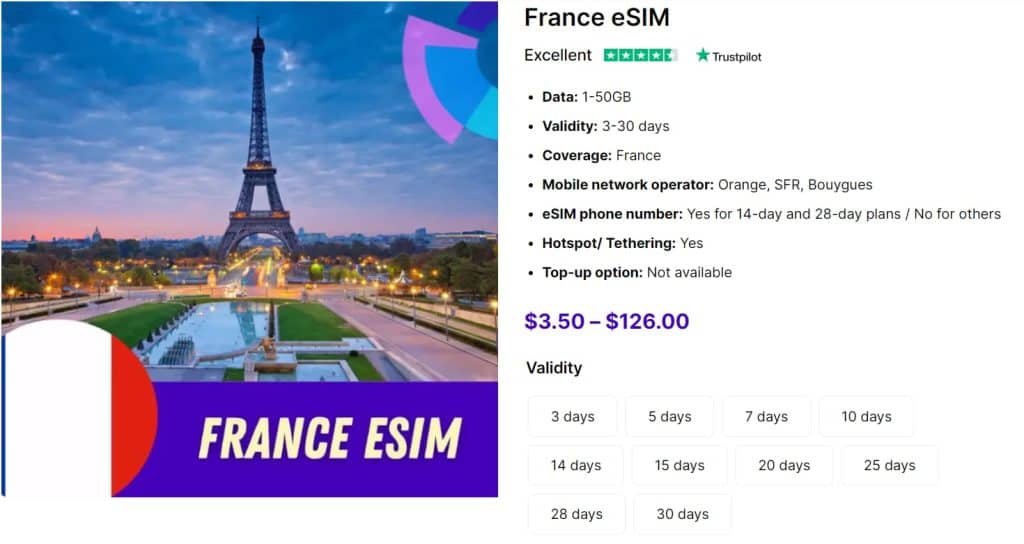
There are also some added benefits to help customers have the best experience:
- Instant delivery: eSIM profile details delivered via email. No waiting for shipping, no removal, no risk of loss.
- 24/7 support: Answer questions and provide 24/7 technical support via chat or email.
- Easy to use: 100% online. Receive eSIM via email. Scan a QR code to install. Activate eSIM when you land and get connected instantly
VII. Extra Tips To Use Cell Your Phone in France?
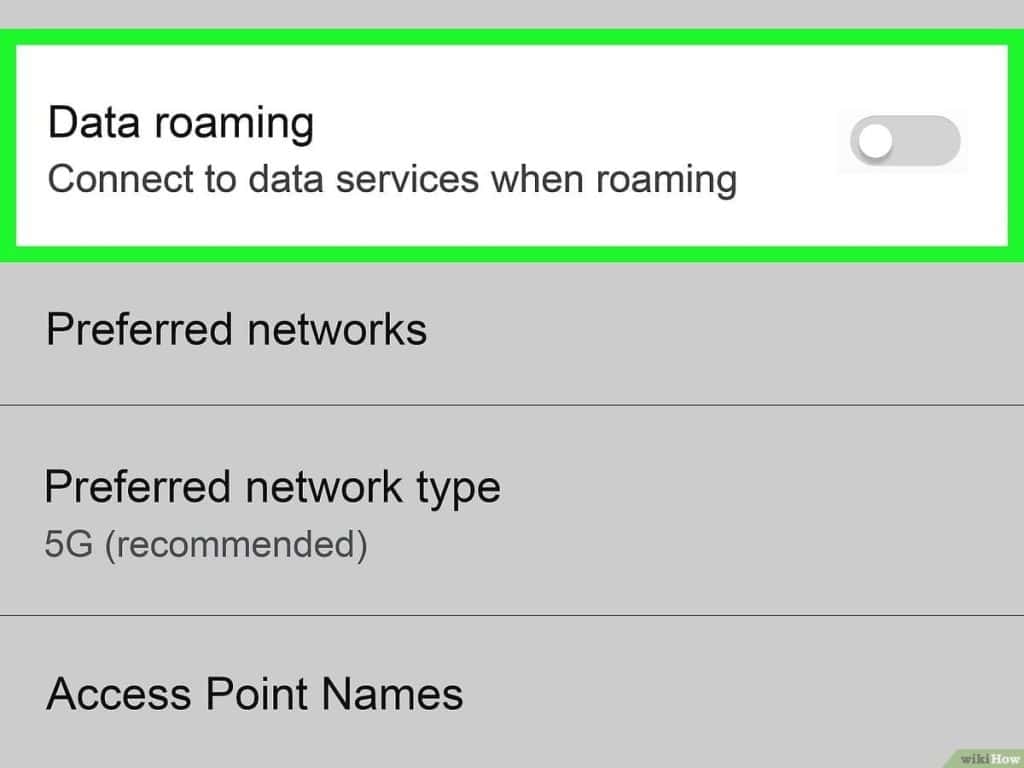
Some additional tips below can help you to have a smoothier trip:
- Download offline maps and travel apps: This way, you can navigate around France and access useful information even when you’re not connected to a network.
- Check your phone’s compatibility: Make sure your phone is unlocked and compatible with the network bands used in France.
- Consider purchasing a local SIM: Buying a SIM (SIM Card or eSIM) in France is a popular and cost-effective option.
- Be wary with public Wi-Fi: When using public Wi-Fi networks, exercise caution and avoid accessing sensitive information or making financial transactions.
Tip: Use a virtual private network (VPN) for added security and encryption.
VIII. Final Words
To use a cell phone in France, you need to know some basic information about coverage, network quality or reliable SIM providers here. Besides, you should consider buying a local SIM so you can use the local network and phone number at the best price and extremely convenient.
Please consider carefully your personal requirements to choose the most suitable method. Have a good time!
